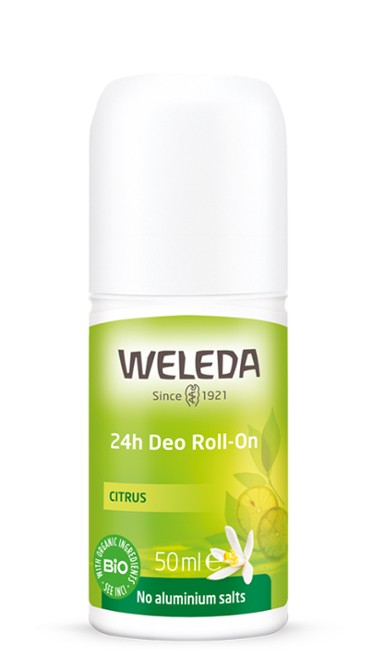
Seven Surprising Facts about Sweat
We break out in a sweat – when we are in love, when we give a talk before a large audience, and of course when we exercise.
1. The Science Behind Sweat
It’s lucky we aren’t lizards. Otherwise, we would need to warm up our body in the morning until it reached operating temperature, and would become increasingly slower in the cool of the evening. Instead, we humans possess an internal regulator. Our body temperature is kept constant by producing heat, for example through muscle activity, and by losing heat, such as through sweating. In contrast to cold-blooded reptiles, our organs work with a constant temperature, allowing us to function independently of the outside temperature. Humans of all living beings have the largest brain in relation to our body size – one that is especially sensitive to overheating. In other words: I think, therefore I sweat.
2. During Sports and Exercise
During sports when our muscles are active, our body generates heat, which could quickly cause our body to become too warm. That’s why we start to sweat during and after sports. It might seem surprising, but sweating is not necessarily a sign that someone isn’t physically fit. Athletes sweat more because their body can regulate its temperature better and faster to maintain consistent performance. At least theoretically: it’s often not so quickly apparent, since they must exercise harder before sweating kicks in. In the sauna, it’s different: those who visit the sauna more often sweat more than newcomers, whose metabolism is not yet accustomed to it. Sweating is better than its reputation – and healthy. We should let our body sweat at least once daily, whether through sports, brisk walking or physical activities in the household, such as vacuum cleaning. While we sweat, our body also rids itself of toxins that are not excreted by the kidneys. That’s why it’s important to drink enough water. Especially after sports – and it’s best to drink something that is non-carbonated, without ice and containing enough minerals to compensate for the loss of minerals during perspiration.
3. Before Exams and Other Unpleasant Events
Everyone is familiar with situations that they would rather avoid. An unpleasant visit to dentist, a difficult conversation at work, or speaking before a large audience, when stage fright might cause us to stumble over our words or go blank. How embarrassing! In situations like these, an archaic mechanism is triggered to protect nothing less than our survival: our body releases adrenaline, preparing us for a possible escape. Even if we don’t run away, our body is ready for it, and cooled by the sweat of anxiety. To ensure that the speech does go over smoothly, conscious abdominal breathing is helpful. Visualizing ourselves giving a flawless speech along with positive affirmations can help us to perceive the situation as less of a threat, so that we release fewer hormones. Over the long term, practicing relaxation exercises can help us to be less tense overall.
Sweating...
...when in love, during sports and in the summer heat
4. In the Summer Heat
Our body is a living organism that has specific requirements. It requires a core temperature of around 37 degrees Celsius, so that all its metabolic processes can run smoothly and the muscles, internal organs and especially our brain can work optimally (see 1, above). Since these activities alone create heat, we produce up to half a litre of sweat daily – often without realizing it. The higher the ambient temperature rises and approaches our own body temperature, the longer our body needs to keep its cool. In summertime, our body counters overheating by allowing its two million eccrine glands, which are distributed across the entire skin, to give off more of the liquid secretion that we call sweat. When this evaporates, the body cools down. To avoid overtaxing this mechanism when outdoor temperatures are high, it’s helpful to spend as much time as possible in the shade, avoid strenuous activities and drink plenty of liquids. This is because when we sweat, our body loses fluid and minerals, which it needs just as much as maintaining a proper temperature.
5. During Menopause
Menopause refers to the years of change from one life phase to another, which mark the start of our last third of life. On a physical level, the hormonal situation in our body changes during this time. The body produces less oestrogen, which up until then helps our body to regulate its temperature. Women often experience hot flashes and increased sweating. Similar symptoms are also possible in men, because their testosterone level drops. On a psychological level, during this period of transition we are increasingly confronted with our own mortality, question the meaning of life and consider which – possibly new – directions we now want to explore in life. These are all aspects that can also make us quite restless spiritually, causing us to sweat. Hot, strong spices such as chilli, pepper and garlic powder, as well as stimulants such as coffee and alcohol amplify the effects – often unintentionally – even if we have previously tolerated them quite well. Relaxation exercises, sufficient exercise and homeopathic remedies can help. Embracing the change and its potential can also help to reduce discomfort, along with establishing a new rhythm that allows sufficient time for rest.
6. When in Love
Butterflies in the stomach, sweaty hands – falling in love is wonderful, but for our body it means one thing above all: stress. When the sparks fly, our body secretes more amounts of the hormones adrenaline and noradrenaline. Our heartbeat quickens, more oxygen is pumped through our body, and our hands become moist. Our body signals an alarm, similar to when it is afraid, only now it adds the “happy hormones” dopamine, endorphin and serotonin. As a result, when we go on a date – which might change our whole life – we find ourselves in a state of excitement, anticipation and bliss. Who would want to run away from a situation like that? Especially since being in love, from a chemical point of view, resembles a state of intoxication, a feeling that that we can’t get enough of.
7. Good to Know: Plants Also Sweat
We can’t observe it directly, but plants also sweat – or as a botanist would say, they “transpire”. Since plants aren’t able to uproot themselves and move into the shade when the sun shines, they have developed their own techniques of coping. A tree cools itself by giving off moisture in the form of water vapour through tiny pores on the shady underside of its leaves. As the water evaporates, it creates a strong pull that the tree uses to transport the minerals it needs to grow along a long molecular chain reaching from its roots to its leaves. A maximum of 130 metres can be overcome in this way, which is why trees do not grow infinitely into the sky. A large birch tree “sweats” around 400 litres of water on a hot summer day, which is why the ground beneath it often looks so dry. Cacti are masters in saving water: to exist in the hot, dry desert their leaves evolved into thorns with a smaller surface area. Their silvery-green waxy coating reflects sunlight and also helps to keep water inside the cactus from evaporating. The “old man” cactus (Cephalocereus senilis) covers itself in woolly white hairs. This does not cause the cactus to sweat in a special way; instead, the insulating hairs keep the level of ambient humidity as high as possible, enabling the plant to grow up to 200 years old.


















